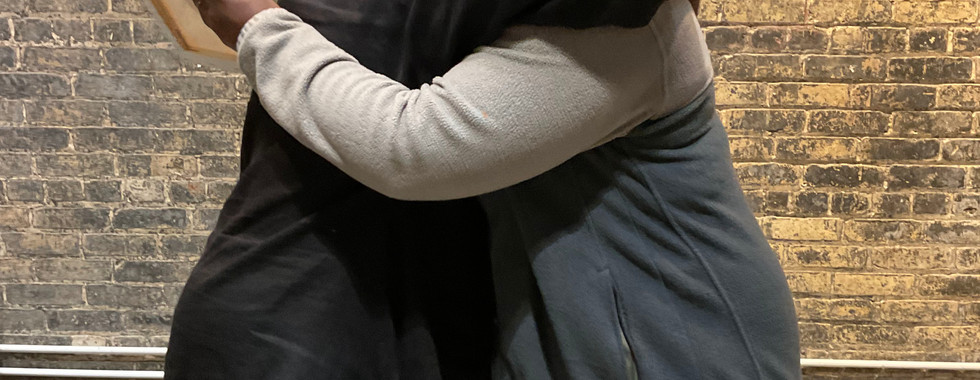Following the Drinking Gourd: A Reflection on My Experience in Part of Louisiana
- Clarreese G.
- May 23, 2023
- 5 min read
To God be all the glory, all the honor, and every single ounce of the praise for all those who came before me, for the community beside me, and the stewards of the future. It is in His remembrance, that I say ashe.
The Mississippi doesn’t rest—it rolls. Its confluence of currents shows what happened even in the development of New Orleans. For rivers carry dreams, adventure, destinies, and the resistance of oppression—always flowing and never ending. They were having barbeques when the levees gave after Hurricane Katrina. The water crept in and became known as the federal flood amongst the people. One concept that stuck with me, seeing some things restored, some things renewed, and some things ran ragged: Buildings can be built and roads can be paved, but the infrastructure we should focus on building back better is the people, the cultures to which they belong, and the spaces in which they inhabited. That is what is eroding. That is what is being forgotten. This essay serves to reflect on that and what I have come to know from my visit to New Orleans, Louisiana.
Plantations used to actively glorify the enslaver more than uplifting the voices of the enslaved. However: “Until the lion writes his own story, the tale of the hunt will always glorify the hunter.” From the beginning of colonization, trading was unequal between the Indigenous Peoples and the settlers. From the furs of animals to the overall governmental development of the U.S. as we know it, much more credit was taken than given to those First Inhabitants and their descendants. The development of infrastructure in the city similarly is underestimated in terms of the handiwork. The French Quarter, for example, is made up of Spanish and French buildings and ornaments. Spain, and part of France, was conquered by the Moors, so their concept of things—their aesthetic—is African. All knowledge of harvesting, land and plant management came from those who were enslaved. To this day, there is some knowledge we will never access as industries and enterprises sit on the bones of those before us. Because of land denial requests, for example, there is not room for the owners of the plantation that we visited to do archaeological search on the bones that remain on the plantation. Industries continue to devalue land, life, and legacy by permitting the commodification of the Living World. A lot of chemical industries, for instance, have built directly on top of bodies. This rings true in my own community of the Gullah, where they continue to push to build their golf courses, hotels, and leisure where folk have been laid to rest. Even on the plantation, where they have not unearthed the bodies, they continue to use parts of the former area of the plantation for agricultural “commodities.” Don’t y’all be using that word by the way. Don’t get used to none of this. Don’t be so expectant and entitled. Commodities… We tread upon days in which only those who can plant will eat. Instead of ruminating on the question “why are we here today?” when at the plantation, I called into remembrance, the time I did visit a plantation in Washington D.C. Before anyone could call out to me like they did at Monticello, I worked on actively thanking those, in Spirit, who came before me. The land being eroded and many energies moved on due to the hurricanes and tropical storms before, I found it onus to know their stories like I know mine. To transcribe them like I write for you now. For example, no one talks about Congo Square being a burial ground. They talked about the way Enslaved Peoples were restricted to congregate and fellowship only on Sundays and there they could worship and rejoice out loud. I know the trees in Congo Square done seen some things. Trees bring the past and the present together, you know? Do you know what the people speak on instead? Kinship, sharing, and prosperity. Just as we are manifestations, we make manifest for we are not just a part of Creation, but the very stewards thereof. We all play a part and it behooves us to act like it.
That said, I must talk about tradition. We separated church and state, but religion was never about the gods, the sacrifices, nor the tithes. It has always been about the way you live, the traditions you are continuing, and that which you are letting go of. As more things die out and off, there are calls for new songs to be sung. As a Doctorate student, one thing I hear a lot is the way that there is so much time involved in obtaining a doctorate degree. From three years to ten years, I have heard quite a range in obtaining the degree. In my head, I understand this time will pass anyways. There is no guarantee that I am around for all of it. So, how am I engaging with the concept? How am I building it for me, those beside me, and, hopefully, those after me? I must articulate that it has never been about the degree, it is about applying yourself. It is about having gumption and acting on it. We create the institutions; they don’t create us. What have we created with that? Traditions have been born out of resistance. For example, the punishments of enslaved peopled reflecting in Black parenting: from switches and whoopins to soap in the mouth and ‘I’ll give you something to cry about.” For example, we know that the Catholic church keeps great records, but they did not keep the records of plaçage well. For example, with the Code Noir restricting freedoms: Black folk that owned land, did not anymore; Black folk that were free were not afforded citizenship and no one had to honor the flimsy papers that said otherwise. For example, the Emancipation Proclamation did not liberate everyone. For example, a lot of hotels in the French Quarter were constructed out of holding houses, houses that held Enslaved Peoples. For example, Second Line was used to help give thanks in community for Indigenous Peoples helping free Enslaved African Peoples too. For example, Black People were here before the transatlantic slave trade. For example: we are still here.
We say ‘call and response’ but we are only calling for those who hear. For those who hear, let them come to know that our history does not start with slavery and it does not end with oppression, suppression, repossession, depression, nor dispossession. It is time to do something new and I do not mean a nail fill nor a haircut. I brought you through the repass, now let me take you to the jubilation.
One thing that caught me off guard was when one guide was talking about Black Christians also being known as ancestral worshippers. Then it made sense. Duh! From the photo albums in which relatives make a point to tell you each name as they flip the book, to the one dresser/counter that seems to never change with the particular items on it: I am called to remind you that where you are going, it will be just as important to know where you have been. Instead of waiting for the next year to adorn yourself in a new suit as our Black Indian brothers and sisters are called, I remind you that each season will require a different version of yourself. So, make haste and get the inferiority up off you: there are curses to break, love to make, and tables to shake. Thank you.
All the Best,
CLG (Clarreese La'Nay Greene)















Comments